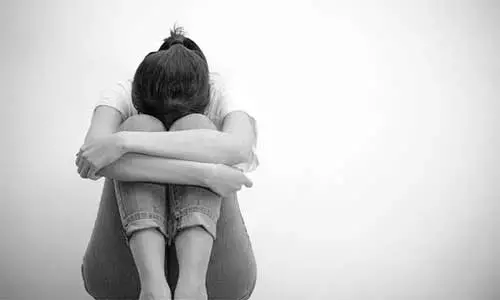- Home
- Medical news & Guidelines
- Anesthesiology
- Cardiology and CTVS
- Critical Care
- Dentistry
- Dermatology
- Diabetes and Endocrinology
- ENT
- Gastroenterology
- Medicine
- Nephrology
- Neurology
- Obstretics-Gynaecology
- Oncology
- Ophthalmology
- Orthopaedics
- Pediatrics-Neonatology
- Psychiatry
- Pulmonology
- Radiology
- Surgery
- Urology
- Laboratory Medicine
- Diet
- Nursing
- Paramedical
- Physiotherapy
- Health news
- Fact Check
- Bone Health Fact Check
- Brain Health Fact Check
- Cancer Related Fact Check
- Child Care Fact Check
- Dental and oral health fact check
- Diabetes and metabolic health fact check
- Diet and Nutrition Fact Check
- Eye and ENT Care Fact Check
- Fitness fact check
- Gut health fact check
- Heart health fact check
- Kidney health fact check
- Medical education fact check
- Men's health fact check
- Respiratory fact check
- Skin and hair care fact check
- Vaccine and Immunization fact check
- Women's health fact check
- AYUSH
- State News
- Andaman and Nicobar Islands
- Andhra Pradesh
- Arunachal Pradesh
- Assam
- Bihar
- Chandigarh
- Chattisgarh
- Dadra and Nagar Haveli
- Daman and Diu
- Delhi
- Goa
- Gujarat
- Haryana
- Himachal Pradesh
- Jammu & Kashmir
- Jharkhand
- Karnataka
- Kerala
- Ladakh
- Lakshadweep
- Madhya Pradesh
- Maharashtra
- Manipur
- Meghalaya
- Mizoram
- Nagaland
- Odisha
- Puducherry
- Punjab
- Rajasthan
- Sikkim
- Tamil Nadu
- Telangana
- Tripura
- Uttar Pradesh
- Uttrakhand
- West Bengal
- Medical Education
- Industry
Magnetic seizure therapy may help prevent suicide in depression patients: JAMA

Canada: Magnetic seizure therapy (MST) could be a potential treatment for suicidality in patients with treatment-resistant depression, suggests a recent study in the journal JAMA Network Open.
Suicidality is a major public health problem. It is a term that encompasses the spectrum of suicidal behaviors and thoughts. At least 800 000 people worldwide are known to die by suicide each year. About 90% of the people who die by suicide have a primary psychiatric illness.
Despite this, there is an unmet requirement for effective suicidality treatment in mental disorders. Electroconvulsive therapy is known to be an effective treatment for suicidality and MST has been investigated as its alternative for the management of the treatment-resistant major depressive disorder, with promising findings. Yet. there is a dearth of data on the association of MST with suicidality directly. It is important to explore the potential of MST as a viable alternative to electroconvulsive therapy for suicidality. Keeping this in mind, Cory R. Weissman, University of Toronto, Toronto, Ontario, Canada, and colleagues determined the association of MST with suicidality in patients with treatment-resistant major depressive disorder.
The trial was conducted at single tertiary care in Canada. The researchers followed a design of open-label study ith consecutive treatment cohorts. Consecutive groupings of 67 patients with treatment-resistant major depressive disorder and with baseline suicidality present were treated for up to 24 treatments. The study was run from February 2012 through June 2019. Patients were followed up for 6 months at the end of the treatment period.
MST was delivered at 100% stimulator output over the prefrontal cortex with low (25 Hz), moderate (50 or 60 Hz), or high (100 Hz) frequency, for a maximum of 24 sessions.
Remission from suicidality was measured as an endpoint score of 0 on the Beck Scale for Suicidal Ideation.
Key findings of the study include:
- The overall number of patients achieving remission was 32 (47.8%).
- Sixteen patients (55.2%) receiving low-frequency MST achieved remission, as well as 12 patients (54.5%) in the moderate-frequency group, and 4 patients (25.0%) in the high-frequency group.
- The linear mixed model revealed an association of time with Beck Scale for Suicidal Ideation scores (F8,293.95 = 5.73).
"These findings suggest that MST may be an effective treatment for suicidality, and sensitivity analysis shows this may be particularly so at low and moderate frequencies," wrote the authors.
"Future studies should directly compare MST with electroconvulsive therapy for treating suicidality and should evaluate MST as a treatment for suicidality across mental disorders," they concluded.
The study, "Magnetic Seizure Therapy for Suicidality in Treatment-Resistant Depression," is published in JAMA Network Open.
Dr Kamal Kant Kohli-MBBS, DTCD- a chest specialist with more than 30 years of practice and a flair for writing clinical articles, Dr Kamal Kant Kohli joined Medical Dialogues as a Chief Editor of Medical News. Besides writing articles, as an editor, he proofreads and verifies all the medical content published on Medical Dialogues including those coming from journals, studies,medical conferences,guidelines etc. Email: drkohli@medicaldialogues.in. Contact no. 011-43720751


